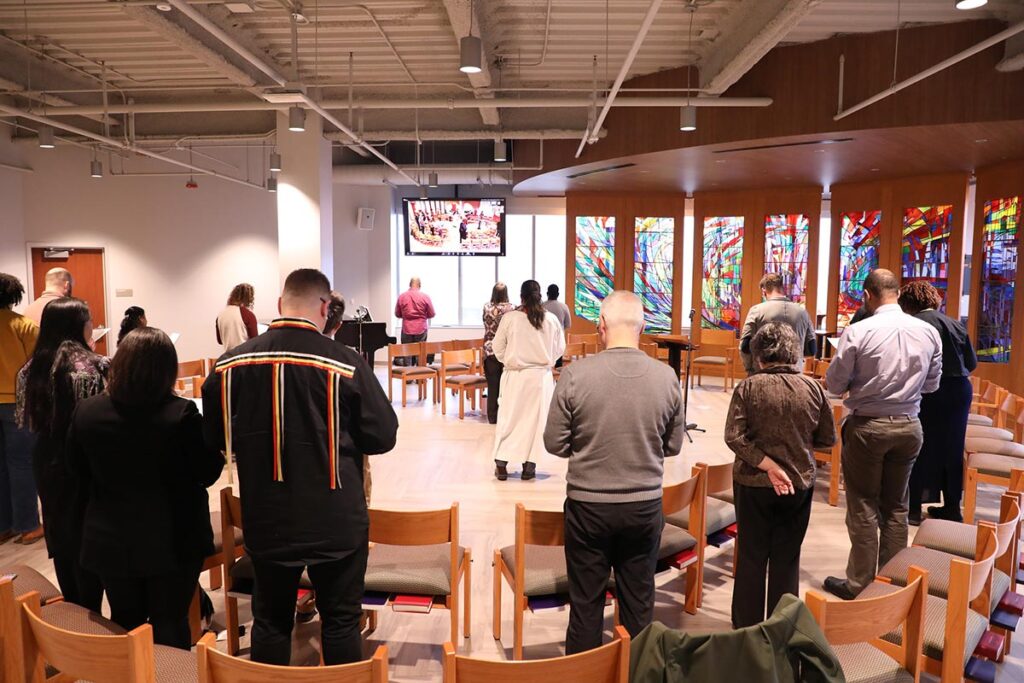What Lutherans Can Learn from ELCA Ecumenical Partners: A Call to Mercy and Justice

In these deeply divided times, when fear so often overshadows hope, our community has been given a sacred opportunity to reflect on what it means to live faithfully as leaders of the public church. The bold witness of our ELCA ecumenical partners, particularly the Episcopal Church and Bishop Mariann Edgar Budde, challenges us to recommit to God’s call for mercy, justice, and welcome for the stranger. Their words and actions remind us of our shared mission to embody Christ’s love for all people, especially those who live on the margins of society.
The Letter from Episcopal Church Leaders on Trump Administration Immigration Executive Orders, published online on January 21, 2025, expresses a profoundly biblical perspective on immigration. It urges leaders to “exercise mercy and compassion, especially toward law-abiding, long-term members of our congregations and communities; parents and children who are under threat of separation in the name of immigration enforcement.” The letter directly invokes Leviticus 19:33-34: “‘When an alien resides with you in your land, you shall not oppress the alien. The alien who resides with you shall be to you as the citizen among you; you shall love the alien as yourself, for you were aliens in the land of Egypt.’” This scriptural mandate to love and welcome the stranger is a cornerstone of Christian faith and ethics.
Similarly, Bishop Budde’s remarks at the Inaugural Prayer Service offered a courageous and prophetic voice during a moment of national reflection. Addressing President Trump directly, she implored him to “have mercy upon the people in our country who are scared now.” She drew attention to the fears of immigrants, LGBTQ+ individuals, and others vulnerable to exclusion or harm under current policies. “Help those who are fleeing war zones and persecution in their own lands to find compassion and welcome here,” Budde said, urging leadership rooted in mercy. Her words evoke lessons from Micah 6:8: “He has shown you, O mortal, what is good. And what does the Lord require of you? To act justly and to love mercy
and to walk humbly with your God.”
At LSTC, our mission to form visionary leaders for the public church is deeply aligned with calls to action. Our values of compassion, justice, and community guide us to live out the Gospel in ways that challenge the systemic injustices of our world. As the Episcopal Church letter notes, “This vision of God’s kingdom, this new reality, is the one to which we Christians are pledged in our baptism above any political preference or policy.” It is this same vision that compels us to advocate for policies that honor the dignity of every person, offer sanctuary to the vulnerable, and work tirelessly for justice.
Ephesians 2:19 reminds us that in Christ, we are “no longer foreigners and strangers, but fellow citizens with God’s people and also members of His household.” This vision of unity and belonging transcends earthly divisions and inspires us to build communities that reflect God’s love and justice. At LSTC, this commitment takes shape in our dedication to diversity, equity, and inclusion, as well as in our partnerships with ecumenical and interfaith allies. Together, we amplify our voices and strengthen our shared witness for a world where mercy and justice prevail.
As Lutherans, we have much to learn from the Episcopal Church’s example of prophetic leadership. Their courage to speak truth to power and their steadfast commitment to justice inspire us to recommit to our own call as a public church. By walking together in faith, we can prepare leaders who bear witness to the Gospel, proclaim Christ’s love, and offer hope to a broken world. Let us remember, as Bishop Budde reminded us, that leadership rooted in mercy reflects the heart of Christ, calling us to love our neighbors and welcome the stranger as members of God’s household.